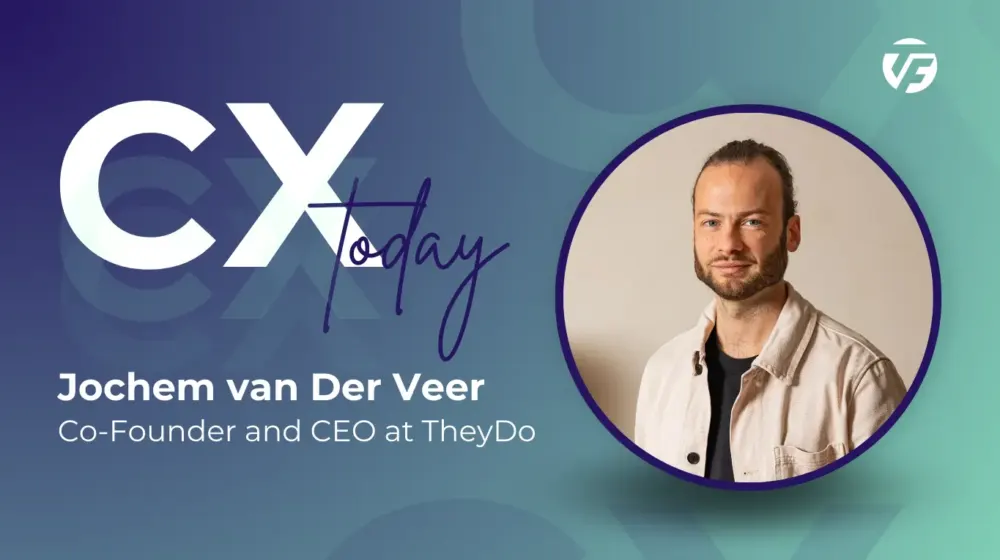
“Professionals who can ‘supercharge’ themselves with AI tools will win big in our new world”
Welcome to the fourth in our series of interviews with “thinkers” about the future of work. While no-one can predict the future perfectly, we know one thing for sure: things will continue to change.
Today, we’re hearing from Colin Fraser. After all, it’s this topic that gets him out of bed every morning! He is Founder and Managing Director at Nevis Capital, an independent consultancy delivering advisory and executive coaching on – you guessed it – the future of work.
Like TechFinitive.com, Colin is known for challenging the status quo. He describes himself as “passionate about the intersection of technology, people and the environment and building businesses that thrive in the long term”. He recently won an award for innovation as CEO of an energy tech business.
So, what does Colin think about the future of work? And how do we all make sure we’re winners rather than losers in the new world of AI? Read on.

What was your first role in tech and what is your current role today?
My first role was as a Graduate Engineer in a fledgling data science firm (Bellrock Technology) – it is now more than a decade old and one of the most innovative data science businesses in the UK!
Today, I run a consulting business that is focused on the future of work. I love that I get to work with a really wide spectrum of people and businesses – some who are experienced tech nerds seeking the next big thing and others who are just figuring out how they can incorporate this new wave of tools and systems into their organisations.
What jobs do you think AI might replace?
Counter to most futurists, I don’t see AI replacing too many jobs in the short run. What I do think is likely to happen, though, is a massive disruption to the way people work; the how, what, where and when of most jobs is really up for grabs at the moment.
In particular, I think it will be people who previously would have thought they were safe from technological disruption – skilled professionals like consultants, engineers, accountants, lawyers and doctors that face systemic changes.
Generative AI tools and their mass availability is of stunning consequence to these professions as it challenges the very notion of learning, application of knowledge and advice.
My belief is that professionals who can adapt and “supercharge” themselves with these new tools will be best placed to win big in our new world.
What are the major factors influencing the future of work?
This is a fascinating question and for me will largely be determined by the culture and value systems that our upcoming generation of leaders will create. From what I’ve observed, there is a good chance that Gen Z (who have lived their entire lives digitally) demand a greater set of values and standards than any generation before them.
They are less likely to drink alcohol or smoke, they care more about the environment and they want corporations to be held to a higher set of standards. As they become influencers and creators of policy, process and change in organisations I think they will create a new set of norms based on their lived experiences – as every generation before them as also done.
This will also be intricately linked to the ongoing geopolitical environment – as power balances shift between democratic and autocratic ways of thinking we will likely see a major impact to corporate culture and values.
Which tech skills will be in most demand over the next 12 months? And ten years?
I think largely the skills in demand over the next 12 months and the next ten years will be similar. There has never been a more pressing need for what I would call “joined-up thinking and action”.
Knowledge (to be more specific, instantaneous access to knowledge) has never been easier in the whole of human history – to the point that we can have (almost) the sum of global knowledge contained in one model (GPT-4).
In a world like this, action, output and the “so-what” become the most valuable currency. Our ability, to parse knowledge, decipher it, join it with other pieces of knowledge and ultimately decide to act upon it becomes all that separates us from our robotic assistants (and even that might be at risk!).
In the tech world, knowing how, when and what to prompt tools with and then what to do with the resultant code will become as important as understanding the languages themselves.
Is there any science fiction story that, in your view, successfully predicts the future?

Despite its age and what you might think of a certain Mr Cruise, I still think Minority Report (2002) was an exceptionally prescient piece of cinematography. It captured the essence of a technological future that was markedly different to the state of the art of the day – remember it was released a full five years before the very first iPhone – whilst reminding us that change can be subtle and build on existing ideas.
My absolute favourite scenes in the movie are the gesture-controlled UIs that Tom Cruise’s character expertly navigates, which fast-forward 21 years look remarkably like the hand gestures my toddler tries to use on my (not touchscreen) TV when they want to change the channel!
Sure, we don’t have crime-predicting children (yet), but when you throw in the hyper-personalised adverts (check), self-driving cars (check), iris scanners (check) and surveillance drone tech (check) it is a pretty good reflection on our current direction of travel.
What jobs will be gone by 2030? And what new jobs might be created?
I’m not convinced there will be too many jobs lost, but I think there will be a whole world of jobs created in the governance, monitoring and ethics surrounding the use of AI.
As it disrupts education, work, healthcare and other sectors, we will need strong governance and systems to provide a set of guardrails that will allow us to best harness the technology without causing more harm than good.
What industries do you think will accelerate because of technology?
As all things in tech, this one is especially difficult to predict. That being said, I love a good punt and I think there are a couple of sectors which stand to benefit greatly from recent technological advancements.
Energy – We are rapidly being forced into a world where technology must evolve faster than ever as our long runway of fossil fuels almost disappears in front of us. Although later to start than most futurists hoped, companies and governments are now (rightly) shifting to lower carbon technologies much faster than predicted, including enabling the right kinds of investment in early-stage ideas.
Advancements in batteries, distributed electricity generation and home appliances are rolling out faster than ever and present a once-in-a-generation opportunity for change.
Independent creatives – One of the things I love most about the recent developments in automation, “no-code” tools and generative AI is how much it empowers independent and smaller businesses, especially in the creative sector. With these tools being at low or no cost, there is awesome democratisation of state of the art and availability for anyone to take advantage of them.
This is counter to the generations before where only the largest agencies, artists or studios could afford the best tools – which increased their monopoly on talent. I hope we see an explosion of freelancers that can compete and showcase their amazing creative spirit!
Read next: How the world of work will look in 2030 by futurist Nicole Kobie
Be part of the conversation
A huge thank you to Colin Fraser for taking the time to answer our questions. If you have something to say about the Future of Work, please email us at [email protected].
NEXT UP

What is the one key thing employees expect from technology when they start their working day?
Regardless of industry, working location or applications used, employees should expect technology to just work.

Let the games begin: Paris Olympics puts AI to the test
The Paris Olympics will drench the French city in AI – but care must be taken to avoid any harm

Jochem van der Veer, Co-Founder and CEO of TheyDo: “In this world of AI, we need to remember to think humanely”
We interview Jochem van der Veer, Co-Founder and CEO of TheyDo, who shares many excellent insights into how businesses can make their customers happy